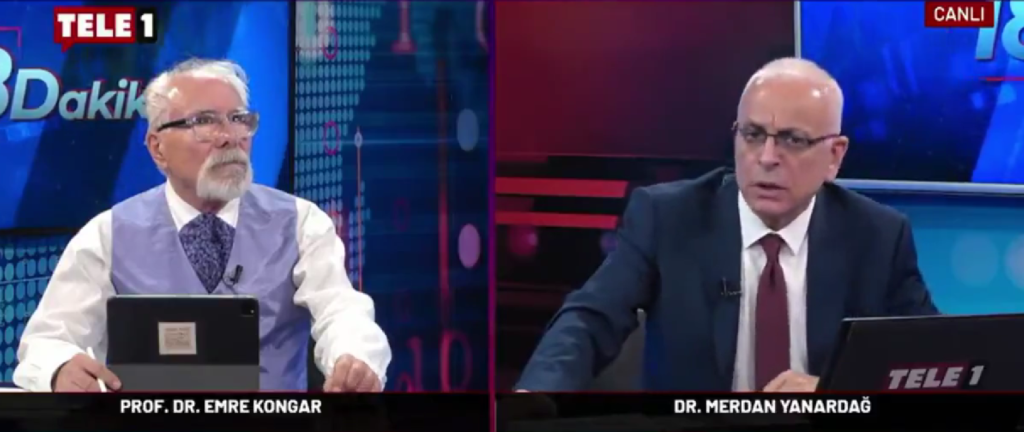Journalist Merdan Yanardağ, the editor-in-chief of Turkish broadcaster TELE1 who was released from prison earlier this week, has stated that he witnessed that there are hundreds of innocent people behind bars who were wrongfully convicted over their alleged connection to an attempted coup in 2016.
Yanardağ, who was facing a prison sentence of up to 10 and a half years, was handed down a suspended sentence of two years, six months and subsequently released at his first hearing on Oct 4.
The journalist was arrested on June 27 on charges of spreading “terrorist propaganda” and “praising criminals” based on his comments about Abdullah Öcalan, the imprisoned leader of the outlawed Kurdistan Workers’ Party (PKK), during a June 20 broadcast on TELE1.
Yanardağ, who was held in Silivri Prison, near İstanbul, for over three months, said during a program on TELE1 on Thursday that there are hundreds of people in the prison whom he believes are innocent.
“They have bundled July 15 into a catch-all case and included many [innocent] individuals in it. I believe some Kemalist officers were ensnared in the coup plot and purged from the Turkish Armed Forces [TSK],” he added, referring to officers who embrace the principles of Mustafa Kemal Atatürk, the founder of modern Turkey.
Turkey experienced a military coup attempt on the night of July 15, 2016 which, according to many, was a false flag aimed at entrenching the authoritarian rule of President Recep Tayyip Erdoğan by rooting out dissidents and eliminating powerful actors such as the military in his desire for absolute power.
The failed coup killed 251 people and wounded more than a thousand others. The next morning, after announcing the coup had been put down, the Turkish government immediately started a wide-ranging purge of military officers, judges, police officers, teachers and other civil servants that ultimately led to the dismissal of more than 130,000 from their jobs.
On the night of the abortive putsch, President Erdoğan immediately blamed the Gülen movement, a faith-based group inspired by Turkish cleric Fethullah Gülen that he designates as a terrorist organization, for the attempt. Gülen and the movement strongly deny involvement in the abortive putsch or any terrorist activity.
During the live program on June 20, Yanardağ had said that Öcalan should have been released if the Law on the Execution of Punishments and Security Measures was abided by, and he criticized the legal basis for the “isolation” imposed on Öcalan.
The “isolation” of Öcalan, who has been jailed in a high-security prison on İmralı Island in the Sea of Marmara since 1999, refers to his inability to speak with his lawyers for years.
The PKK, listed as a terrorist group by Turkey and much of the international community, has waged an insurgency against the Turkish state since 1984 in a conflict that has claimed tens of thousands of lives.
It is common for journalists in Turkey, which has a poor record on freedom of the press, to face threats, physical attacks and legal harassment due to their work.
Rights groups routinely accuse the Turkish government of trying to keep the press under control by imprisoning journalists, eliminating media outlets, overseeing the purchase of media brands by pro-government conglomerates and using regulatory authorities to exert financial pressure, especially since President Recep Tayyip Erdoğan survived a failed coup in July 2016.
Turkey is ranked 165th in the Reporters Without Borders (RSF) 2023 World Press Freedom Index, among 180 countries, not far from North Korea, which occupies the bottom of the list.

